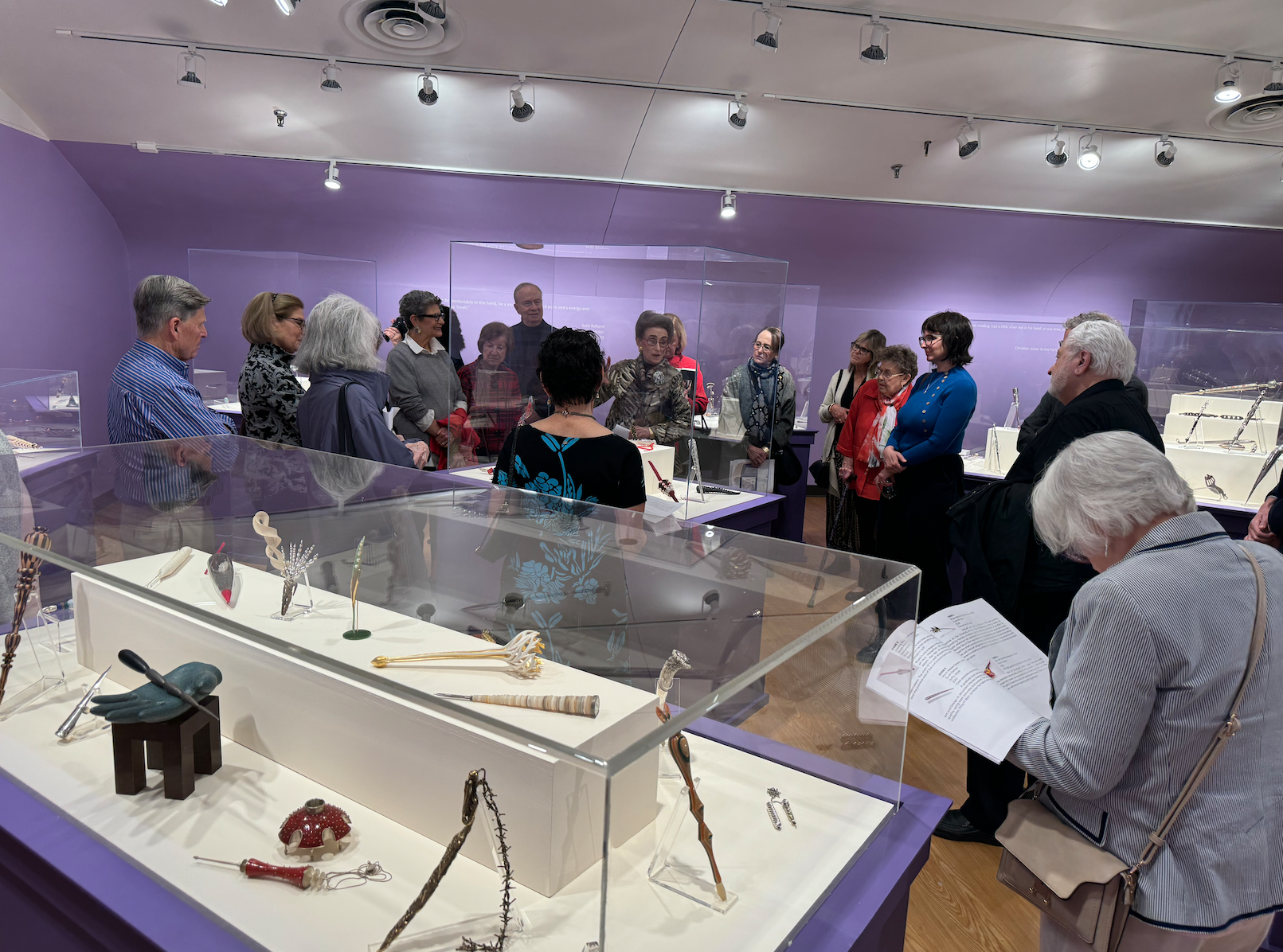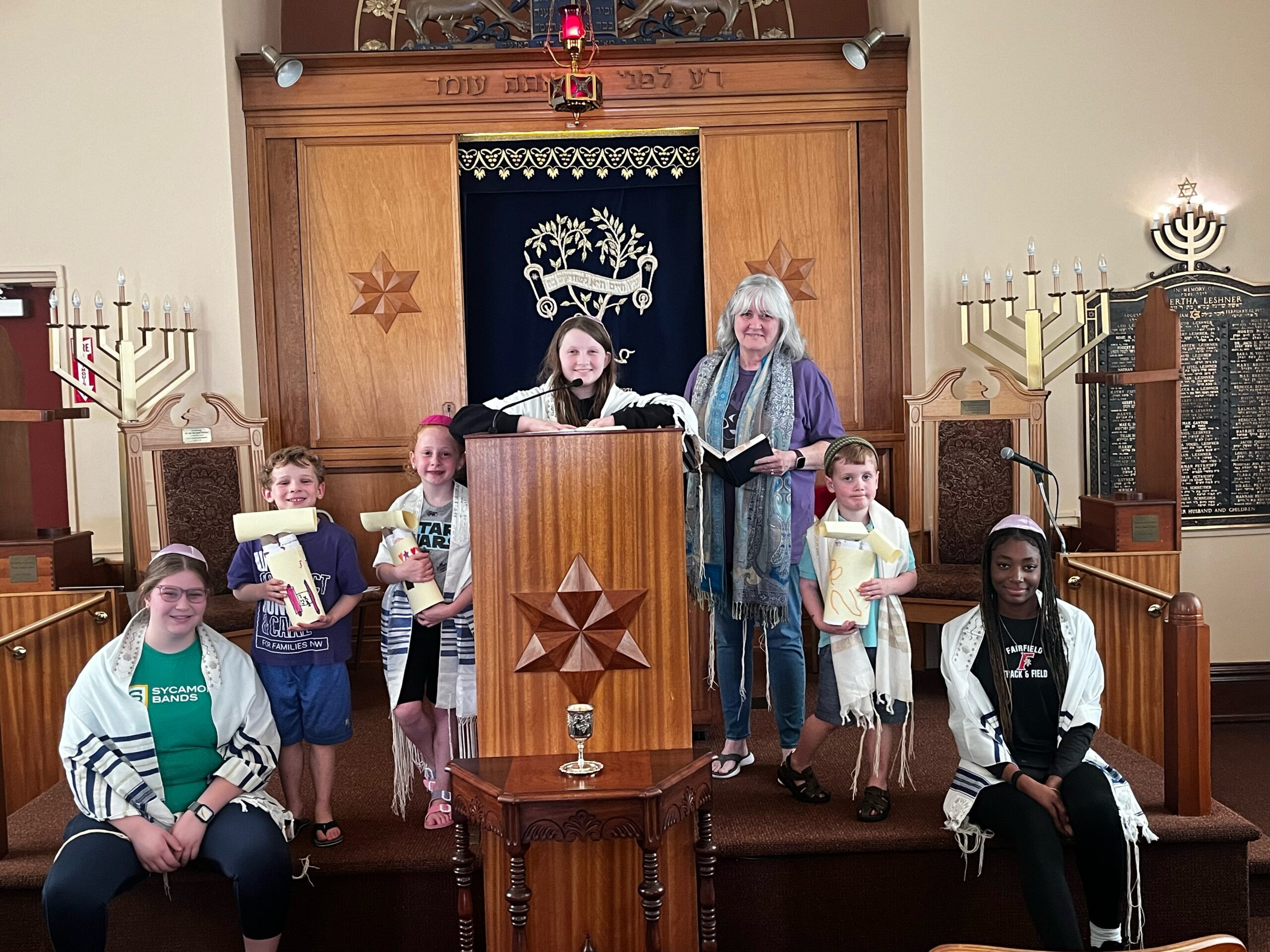By Melissa Hunter
Assistant Editor
Last month, JNF hosted a community “Seeds of Unity” event as part of the USA Women for Israel Tu’Bishvat Celebration. One of the speakers at the evening’s event was Rachael Stern, Director of Operations/Outreach at Tazpit Press Service (TPS), Israel’s independent news agency. I was fortunate to sit down over coffee with Rachel to learn more about her work and her reason for visiting the States, as well as gain a better understanding of TPS’s mission, especially in the wake of October 7.
What is TPS ?
As one of Israel’s news and information agencies, TPS’s focus is on documenting, reporting, and distributing news from Israel with a deep and active commitment to freedom of the press and journalistic integrity. TPS is made up of 500 volunteer “stringers” who serve as photojournalists working throughout the country. “These volunteers are individuals who have decided of their own accord that they want to participate in how Israel is perceived internationally,” Stern explained. CEO Amotz Eyal created TPS 13 years ago, give or take, when he was just a “kid” coming out of the army (since October 7, he has been on active duty). Eyal believed if you put a camera in everyday civilians’ hands, the result is “on the ground, in real time” accurate reporting of the news as it occurs.
One scenario Stern shared was an instance last November when an alert when out of an active terrorist attack taking place at a gas station. One of TPS’s volunteers was near the region and said he was on his way to cover the story. Minutes later, he reported that he was stuck in traffic and asked TPS to provide him with an ID of the perpetrator. TPS sent what they had through their investigators, and it turned out the attacker was in front of him in traffic. The volunteer was able to neutralize the threat before the police showed up, as well as document the stabbing.
“If you have a network working throughout Israel, which is 6 hours up and down, you have access to the truth and accessibility of getting to the scene,” Stern explained. “We see how the international media has completely taken advantage of Israel and monopolized the country’s narrative to fit the opinion of whoever is reporting.”
TPS’s Mission
The AP, AFP & Reuters make up over 90% of the international news. They’re the sources where most people get their information. Yet recent reports that the AP and CNN hired and paid freelancers with established, intimate relationships with Hamas — individuals who knew about the planned attack of October 7 — indicates lines were crossed.
TPS’s approach to fighting this is working internationally to build relationships. Curating these connections and building upon them throughout the years has led TPS to establish lasting relationships with important partners such as Kazakhstan and Azerbaijan.
Rachel recounted the time Eyal was in Azerbaijan and met with the Pakistani owner of the largest, privately-owned news agency in Pakistan. To bring awareness to the aftermath of October 7, Stern reached out to the owner about Daniel Pearl, the journalist who, in 2002, was executed in Pakistan by Al-Qaeda terrorists for being an American Jew. Stern messaged, “You need to post about this.” The owner responded with, “I will my dear, but first, how are you doing?”
“This is how you begin to create generational change,” Stern said. “By creating a personal relationship with somebody who, prior (to that relationship) didn’t have any understanding of what you’re going through and was inculcated with a different agenda, that’s where you plant the seed for critical thinking and perspective.”
Another benefit of this relationship-building is the understanding within civil society of the importance of maintaining relationships with Israel. TPS now works with 37 different countries and has 10,000 subsidiary news outlets through 21 different partners. In 2019, TPS signed with Azerbaijan, and now they have an embassy in Israel. TPS’s reach extends to fostering relationships with embassies and ambassadors as well as news outlets.
“Since October 7, I haven’t felt time.”
Stern’s trip the United States is of great importance in the wake of October 7. “Since the war, people are desperate for Israeli information and to hear Israel’s side of the story,” Stern explained. “Currently there are tons of correspondents on the ground, but normally there are not. Big news anchors rely on local media sources. Since Israel only has one news agency, we provide them with the news.”
The urgency to expand is of the essence. “Since October 7, I haven’t felt time,” Stern said. She has been working non-stop to share TPS’s mission. “If we had access to the New York Times and different news networks in the States specifically, we wouldn’t be seeing these occurrences of antisemitic violence on diaspora Jewry and anti-Israel protests.” According to Stern, there is a system of purposeful disinformation that is being disseminated across news sources and on social media. “Reuters reposted video on social media showing Supernova Music Festival goers running away from terrorists, and not once did they mention the word Hamas. Instead, they focused on the decades-long occupation on the Palestinians. The terrorists used war weapons against kids and civilians. (The post) doesn’t even mention this.” This purposeful disinformation filters into the education system, international institutions, budget spending, and what the president has access to, as well as the public court of opinion. TPS recognizes the importance of starting with the media to spread accurate information. As an apolitical, non-profit organization, TPS freely shares information with governments and privately-owned news agencies to uphold accuracy in reporting.
“We hope to expand to get the American Jewry and world media to understand that we’re accurate and reputable and credible, and can get (to stories) faster than everyone else. This gives us an upper hand.” As the Hamas/Israeli war drags on, Israel is losing international media perspective. That’s what makes Stern’s work so urgent. “With terrible PR and no legitimate budget, how do we do this? As the only wire service in Israel, we need to have the first headline. That’s how you create the change.”





